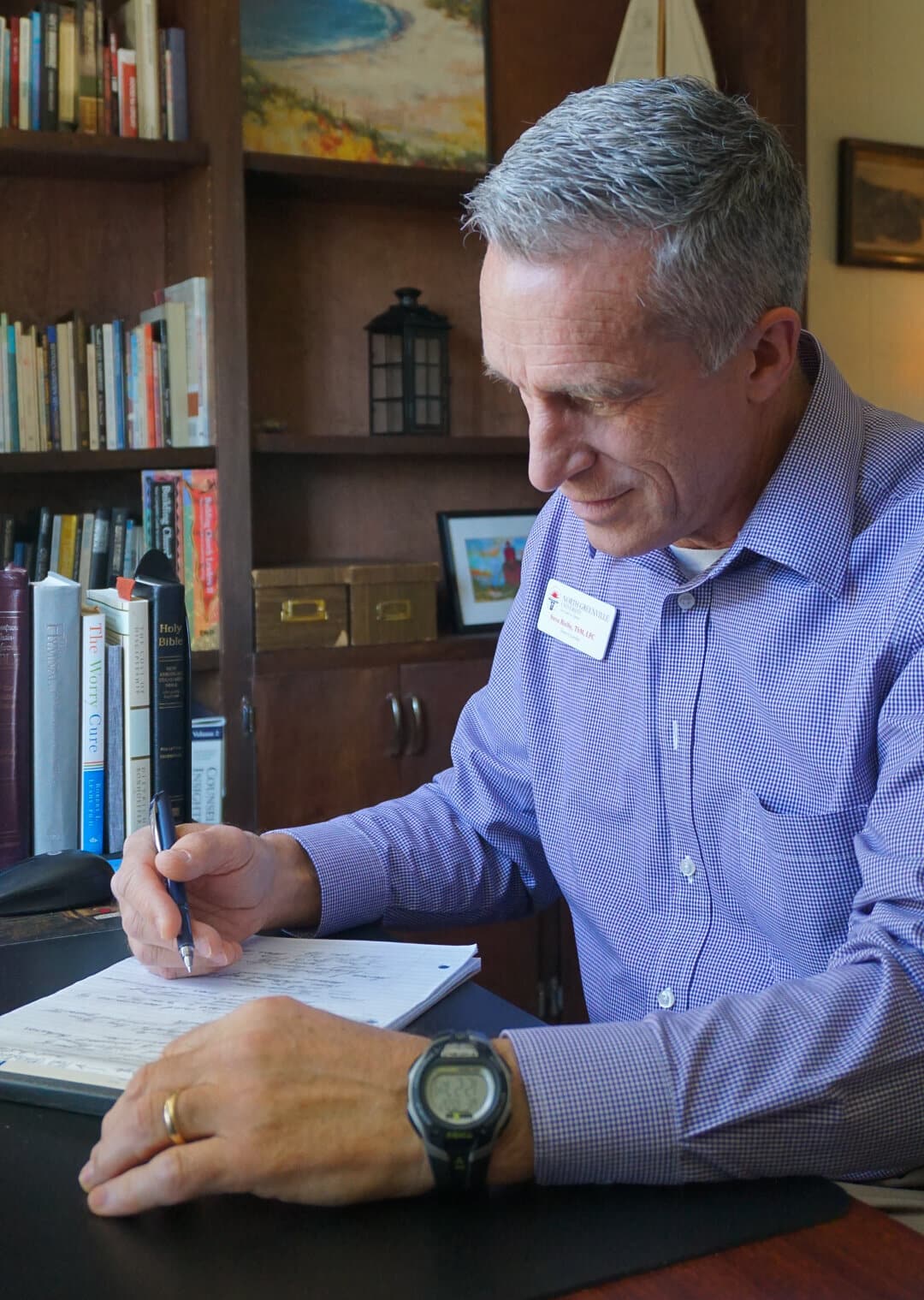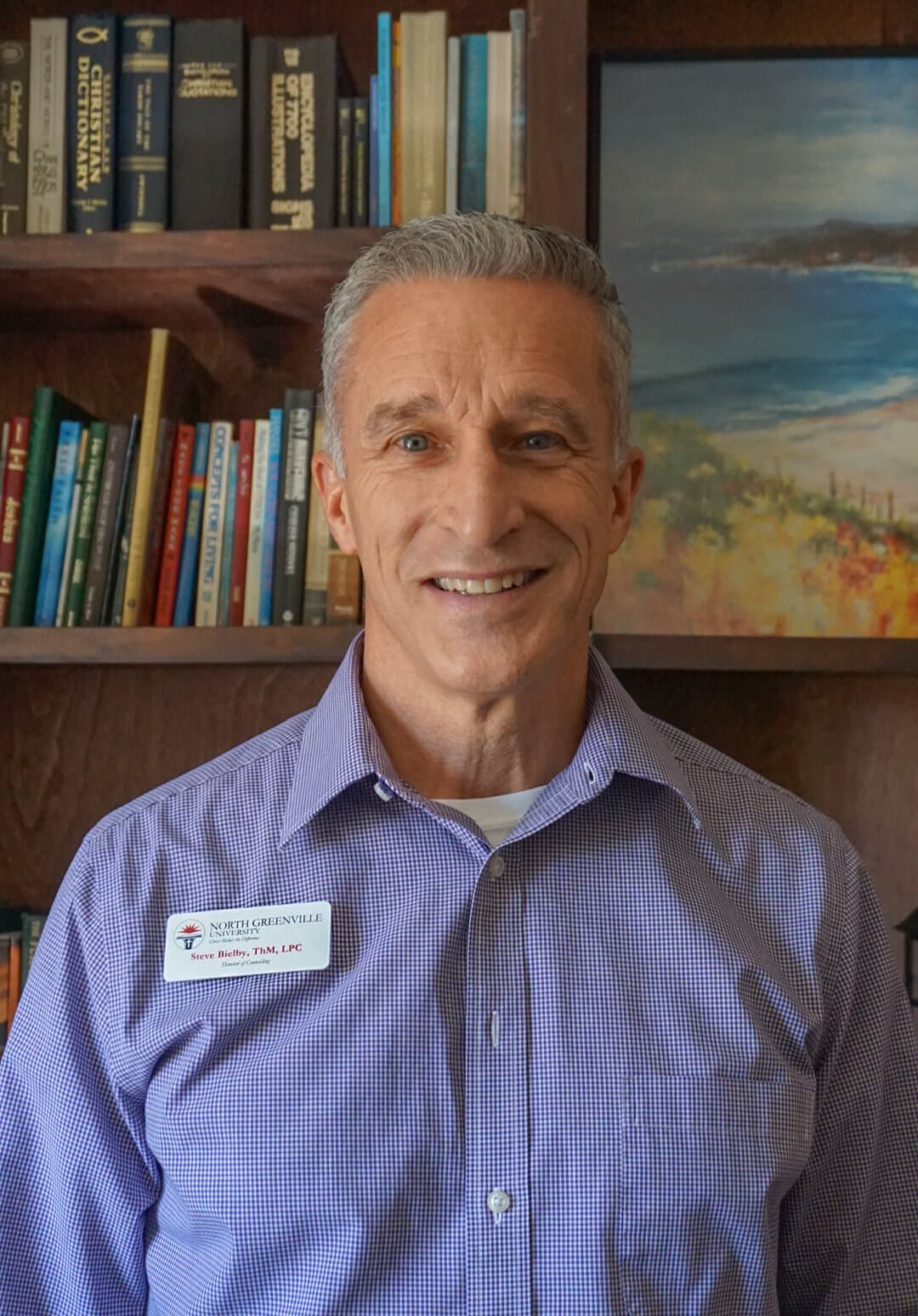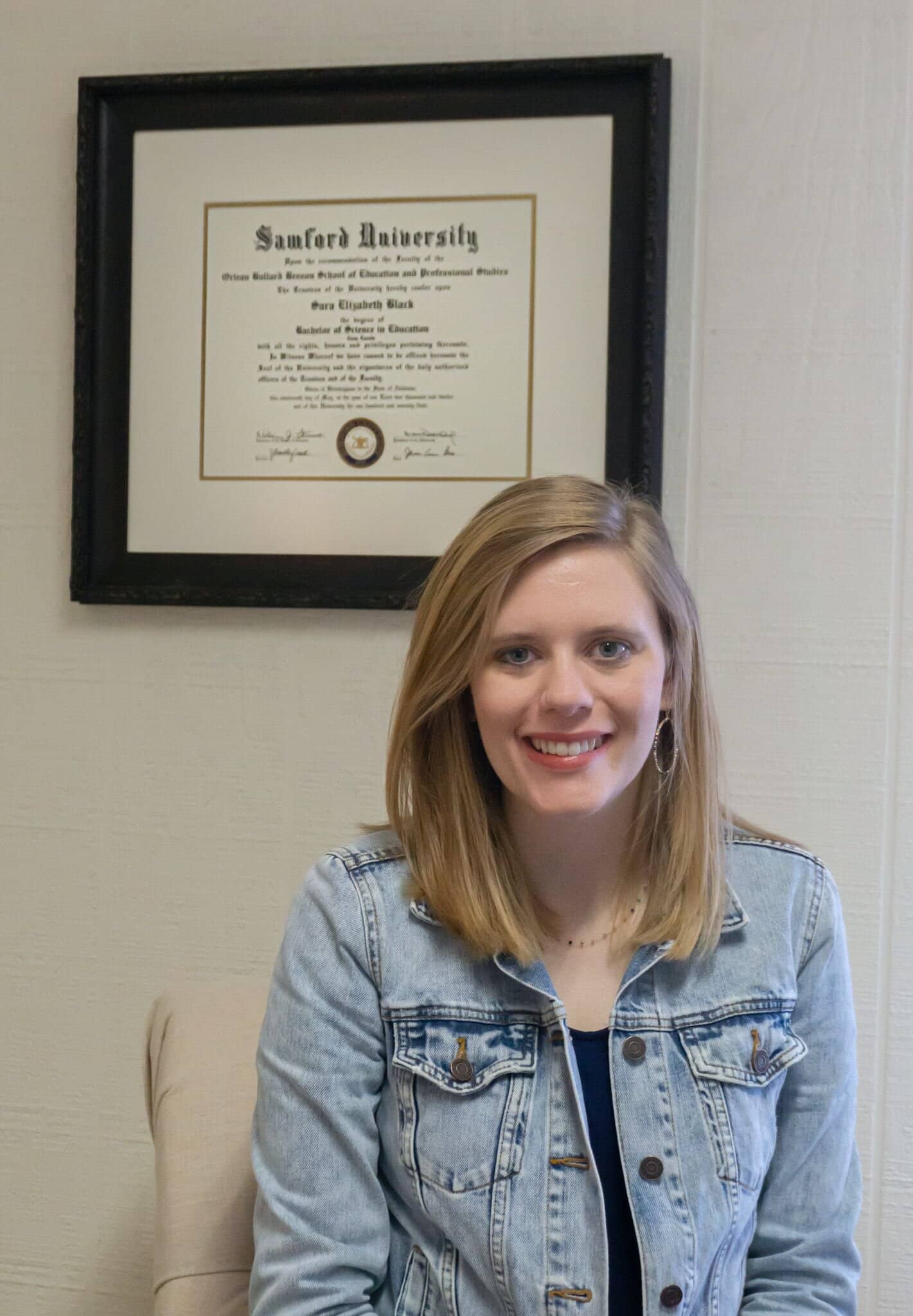
Breaking the stigma: the truth about counselors and mental health
Delaney Blackburn, Features and Entertainment Editor
National School Counseling Week is celebrated each year during the month of February to honor the impact counselors have on the lives of students. North Greenville University’s two mental health counselors, Steve Bielby and Sara Black, shared some insight on what being a counselor is really like.
Yes students, note taking will always be important. Photo courtesy Olivia Hupfauer.
Director of Counseling Steve Bielby said in an interview, “Part of going into counseling is organic; it’s in you. I think it comes down to passion and how you feel like God’s gifted you.”
Bielby said he grew up with a younger brother who struggled with bipolar disorder. He said that seeing the serious symptoms that came with poor mental health motivated him to help people.
Bielby’s career path began in ministry, then gradually transitioned over time from biblical counseling to mental health counseling.
Bielby describes his career mainly as a helping profession. He said that although there are different fields of counseling, it often deals with behavioral or mental health issues.
However, he noted that his profession often doesn’t come without stigma.
“Counselors aren’t weird,” Bielby chuckled. “I think a lot of people have a misconception about counselors—that they’re weird, unapproachable, cold and stoic.”
Bielby said counselors are just normal people, but sometimes clients assume they’re strange or out of the ordinary.
Steve Bielby, Director of Counseling at North Greenville University. Picture courtesy of Olivia Hupfauer.
Additionally, Bielby addressed the shame that is often associated with mental health.
He said that although people aren’t ashamed to talk about their physical injuries or ailments, people are often ashamed to talk about their mental health.
Bielby said that getting help for a mental problem is just as necessary as getting help for a physical problem. He added that it’s okay to talk about mental health in spite of the stigmas surrounding it.
Bielby said, “What’s happening at NGU and in society—it’s less stigmatized now. People who have a diagnosed mental illness are willing to come out and talk about it.”
He said society being genuine about mental health helps those who are struggling with their own issues to get better. He encourages the counseling department and society at large to raise awareness and break the stigma.
Bielby said that his favorite thing about being a counselor is seeing his clients grow and change. He said that helping his clients get to a place of desired change, wholeness and wellness is the most gratifying thing about counseling.
He added that as a Christian, he feels that God is using him as a counselor. He said that he feels a sense of satisfaction in his obedience to what God has called him to do.
He said a lot of counselors tend to come out of their struggles wanting to help others the way they were helped.
Sara Black, one of the clinical counselors at North Greenville University. Picture courtesy of Olivia Hupfauer.
Personal Counselor Sara Black said, “The Lord just laid counseling on my heart when I was a junior in high school.”
Like Bielby, Black also transitioned from ministry into counseling.
Black describes her profession as a ministry or mission to help people take care of themselves physically, mentally and spiritually.
According to Black, North Greenville University offers individual counseling and group counseling. She said if a student is feeling depressed or anxious regularly and can’t find helpful coping mechanisms, that student may want to consider going to a counselor.
Black said, “A lot of the counselors that I know have a genuine interest in wanting to help.”
Black added that a lot of counselors have an interest in psychology. She said Christian counselors often want to take their scientific knowledge and tie it into their spirituality to help people.
Counseling is more than just sitting down and talking face to face. Sometimes it requires computer work and other tasks like phone calls. Picture courtesy of Olivia Hupfauer.
Black said that being there for people is very fulfilling; however, there are some challenging aspects to it as well.
She said counseling involves a lot of personal work, which some clients don’t expect.
She added that a lot of people think the counselor can fix their problems, when in reality progress requires work on the client’s end as well.
“People underestimate how difficult that might be for them.” said Black.
Bielby also noted that counseling requires “homework.” He said clients need to at least be willing to try what their counselors advise them to do outside of their appointments.
Bielby said, “There’s got to be a sincere desire to do whatever it takes … if they’re not serious about it, there is no progress.”
To request services from North Greenville University’s office of counseling services, fill out the counseling inquiry form.?
North Greenville counselors are here to help. Stop by their offices at the NGU Clinic from 8:30 a.m. to 5 p.m. Monday through Thursday and 8:30 a.m. to 12 p.m. on Fridays, or give them a call. Steve Bielby’s office number is (864) 663-0249 and Sara Black’s is (864) 977-2094. Picture courtesy Olivia Hupfauer.





